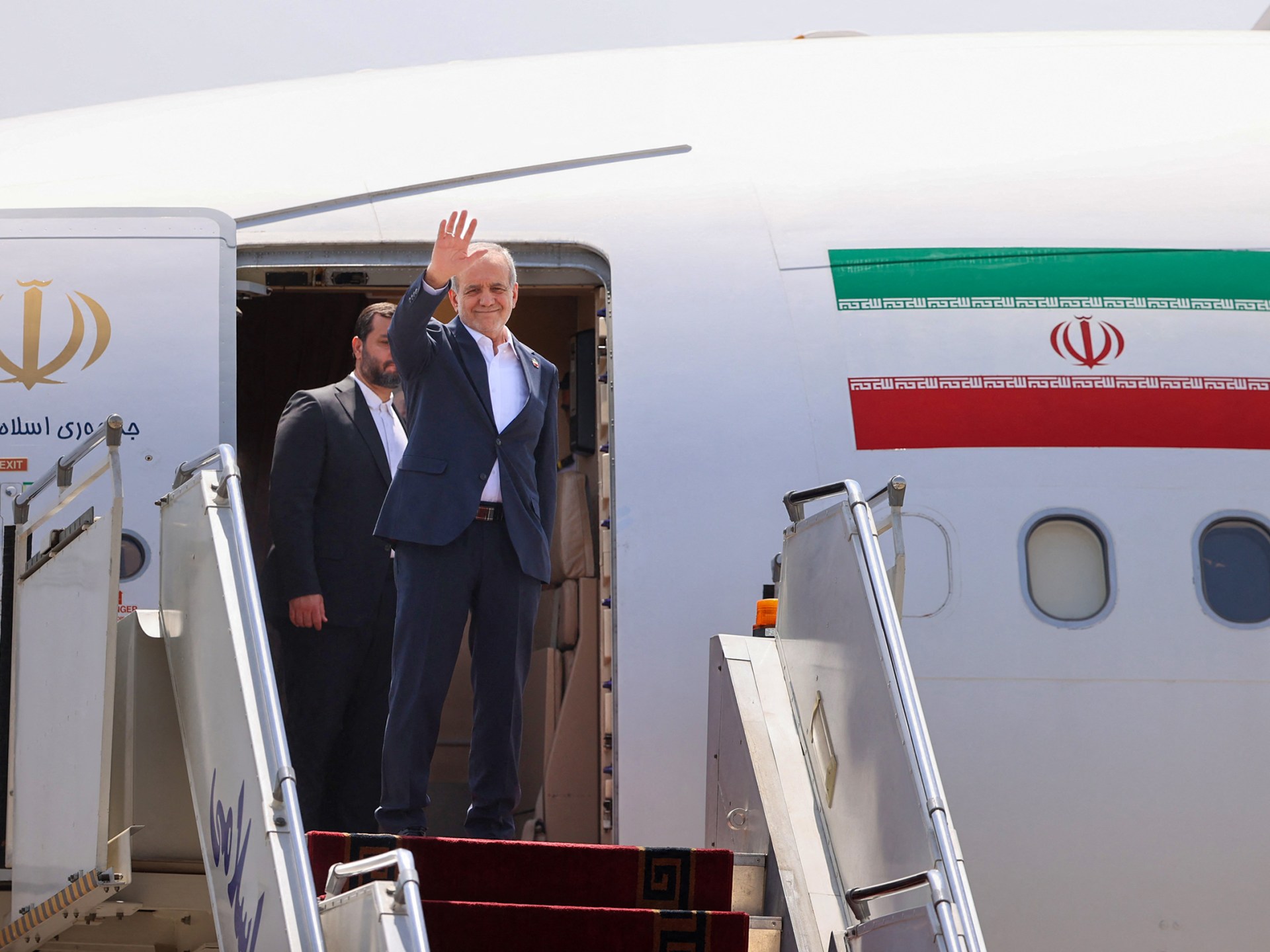The “Trump Route for International Peace and Prosperity” (TRIPP), or land corridor, is a component of a deal that former adversaries Armenia and Azerbaijan signed earlier this month in Washington.
According to US President Donald Trump, the agreement gave the transport corridor exclusive development rights. Additionally, both nations were signing bilateral agreements to strengthen cooperation in fields like artificial intelligence and trade.
Pezeshkian described the possibility of American companies operating in the region as “worrying” before heading to the Armenian capital Yerevan on Monday.
He told state television, “We will talk about it [with Armenian officials] and express our concerns.”
The proposed route would pass close to the Iranian border and connect Azerbaijan with its Nakhchivan exclave. The Zangezur corridor, a proposed transit route, has long been a stumbling block for Tehran because it would isolate Armenia from the rest of the Caucasus and encircle it with potentially hostile foreign forces.
Iranian officials have increased their warnings to Armenia since the deal was signed on August 8 by claiming the project might be a part of a US plot to “urge hegemonic goals in the Caucasus region.”
Tehran’s top concern is that it could “lead to geopolitical changes in the region,” according to Iranian Foreign Minister Abbas Araghchi on Sunday.
He told the official IRNA news agency, “They]Armenian officials have assured us that no American forces or American security companies will be stationed in Armenia under the pretext of this route.”
Russia, with which Iran has a strategic alliance with Armenia, has praised the proposed corridor as being advantageous.
Tehran, according to Ali Akbar Velayati, a top adviser to Iran’s supreme leader, will oppose the initiative “with or without Russia.”
Soon after the agreement was signed, Trump “thinks the Caucasus is a piece of real estate he can lease for 99 years,” Velayati told state-affiliated Tasnim News, adding that the region would “become a graveyard for Trump’s mercenaries.”
Moscow cautiously applauded the agreement, stating its support for efforts to boost regional stability and prosperity. In contrast to Iran, it cautioned against allowing outside actors to intervene, arguing that regional nations should find lasting solutions.
Since the late 1980s, Armenia and Azerbaijan have engaged in numerous conflict since the Armenian government supported its split from Armenia. Nagorno-Karabakh, a region in Azerbaijan that at the time had a predominantly Armenian population, was at the time. In a military operation in 2023, Azerbaijan Baku seized control of the area, leading to the exodus of the ethnic Armenian population.
Source: Aljazeera

Leave a Reply